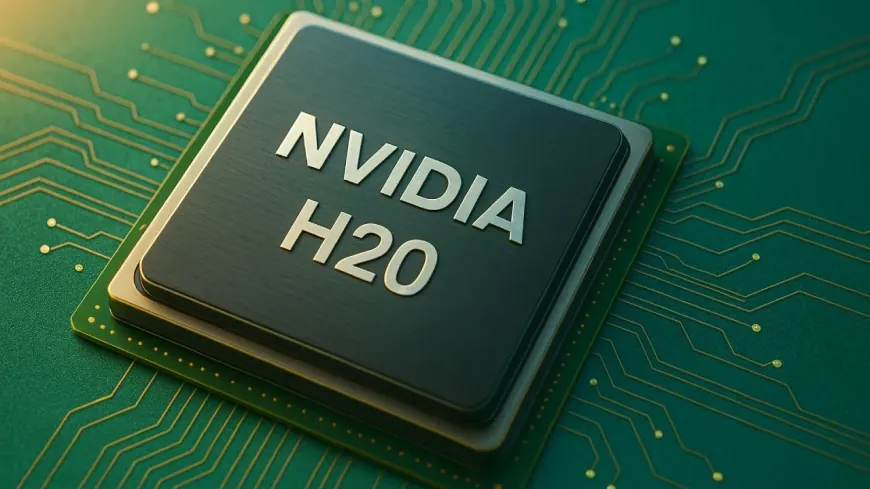Nvidia Faces Chinese Scrutiny Over H20 Chip 'Backdoor Access' Issue
Nvidia faces scrutiny in China over claims its H20 chips may allow remote tracking or shutdown, just weeks after the U.S. lifted export restrictions.

BEIJING – Chinese internet and cybersecurity regulators have summoned U.S. chipmaker Nvidia to explain potential security risks related to its H20 semiconductors. The move follows the recent decision by the United States to lift export restrictions on the chips, allowing Nvidia to re-enter the Chinese market.
The Cyberspace Administration of China announced on Thursday that it held a meeting with Nvidia representatives, seeking clarification about so-called “backdoor safety risks” that could enable tracking or remote deactivation of the H20 chips. The agency said Nvidia is required to submit technical documentation addressing these concerns.
The request comes amid reports that Nvidia’s chips may contain mechanisms allowing their location and function to be monitored or controlled remotely—claims regulators say could pose a threat to national data security.
In a statement, Nvidia firmly denied the existence of such features. “Cybersecurity is critically important to us. NVIDIA does not have ‘backdoors’ in our chips that would give anyone a remote way to access or control them,” a spokesperson said.
The company’s return to the Chinese market came after the U.S. government eased restrictions on certain chip models, including the H20. These chips were designed to meet U.S. export compliance standards and avoid the performance thresholds that triggered previous bans. Nvidia’s CEO, Jensen Huang, had earlier confirmed the renewed access to Chinese buyers during a visit to Beijing this month.
However, the latest development threatens to derail that momentum. Chinese authorities say they are acting under national cybersecurity regulations aimed at protecting critical infrastructure and personal data. Regulators also cited concerns that the tracking features in advanced chips could be exploited for foreign surveillance or sabotage.
The case touches on growing calls in the United States to impose stricter controls on where and how advanced American-made chips are sold. Lawmakers from both parties have recently introduced the Chip Security Act, which would require high-performance chips to include hardware-based safeguards against unauthorized use or smuggling. The bill remains in committee and has not yet moved forward.
U.S. officials continue to bar the export of Nvidia’s most powerful chips—such as the H100—to Chinese buyers. Although the H20 is a scaled-down model, some policymakers argue that it still provides significant computational capacity that could support military, surveillance, or censorship applications in China.
Several lawmakers have expressed frustration over the reversal of the original ban. In a recent letter to the U.S. Commerce Department, a group of senators warned that chips like the H20 still represent a major upgrade over Chinese domestic alternatives and could undercut U.S. efforts to contain the flow of critical technology.
One congressman described the decision to allow sales of the H20 as a misstep, urging the Commerce Department to reconsider its position. He argued that supplying even downgraded chips risks enabling China’s long-term AI ambitions.
For Nvidia, the stakes are high. The company has projected strong demand for the H20 in China and was counting on sales in the region to offset slowing growth elsewhere. But if Chinese regulators withhold approval or raise further objections, those sales could be delayed or blocked altogether.
The latest confrontation highlights the increasingly complex position global tech companies face as geopolitical tensions over semiconductors intensify. As the U.S. and China continue to compete for dominance in AI and advanced computing, businesses like Nvidia are caught between competing national interests, export rules, and security demands from both sides.
Also Read: Nvidia Plans Shanghai R&D Centre Following US Export Restrictions on AI Chips































































